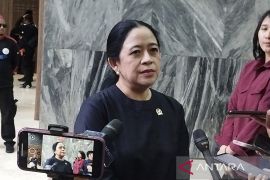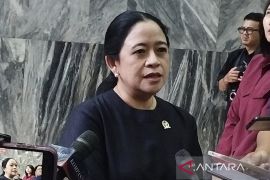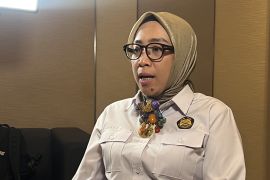"We encourage people to eat more fish so that the per capita fish consumption of the people this year could reach 40 kilograms (kg)," Nilanto Perbowo, director general for reinforcement of the competitiveness of marine and fisheries products of the Ministry of Marine Affairs and Fisheries, said during the commemoration of the second anniversary of the National Fishery Day (Harkannas) here Saturday.
Based on the KKP data, the national per capita fish consumption of the Indonesian people is still about 35 kg, but there were provinces where per capita consumption was more than that, he said.
The aim of the government to commemorate the Harkannas is to publicize the fish eating campaign among the public and to encourage them to eat fish, Nilanto said.
Eating more fish could create a healthier body because fish meat contains proteins which are badly needed, for example, by expectant mothers and children.
"The government, in this case the KKP, will continue to encourage people to consume fish so that it becomes one the main food items in the daily life of the people," Nilanto noted.
With regard to fish stock, Indonesia did not need to import fish as the countrys production was sufficient to meet its domestic requirement, including the needs of its industry and people, an observer said early this month.
"What it might need to import is certain types of fish of good quality that are difficult to obtain in Indonesia in order to meet the demand of hotels," Mahmud Hasan of North Malukus Muhammadiyah University affirmed.
The solution for the fishery industry, which is facing a shortage of raw materials in Indonesia, is not to import but to increase domestic production of fishing companies or traditional fishermen.
Marine Affairs and Fisheries Minister Susi Pudjiastutis policy to impose a moratorium on the issuance of licenses for foreign fishing ships and to optimize efforts to prevent fish poaching have contributed significantly to domestic fish production, and therefore, the industrys need for fish could be met, he pointed out.
The governments program to increase fish production by providing assistance in the form of fish catching tools for fishermen had also increasingly helped to boost national fish production and to reduce the import of fish, which is deemed unnecessary, Hasan said.
"I do not understand the basic reason for the trade minister to allow the import of fish. This policy only benefits certain parties and ignores the interests of the fishermen in Indonesia," the observer emphasized.
The fish import policy will threaten the livelihood of fishermen in Indonesia if it is not lifted, particularly the interest of traditional fishermen, according to Hasan. This is because they will have to face a fall in prices as a result of the arrival of imported fish.
The government should instead focus on ways to increase Indonesias fish exports. One of Indonesias main exports in the face of global market competition is its genuine fish commodity.(*)
Editor: Heru Purwanto
Copyright © ANTARA 2015











